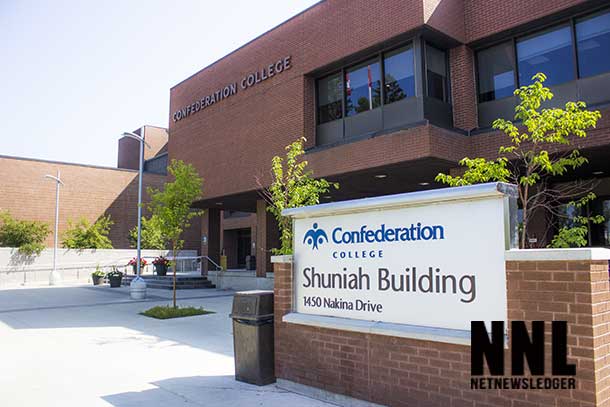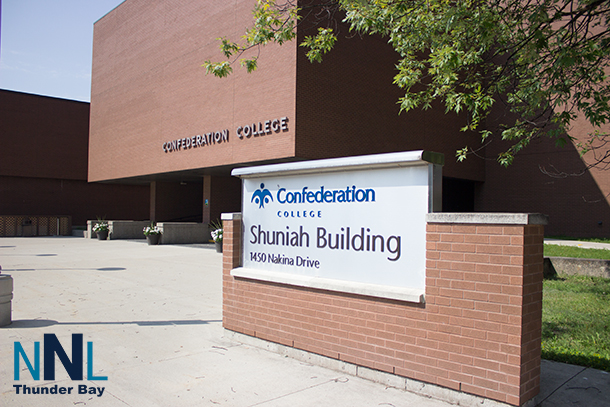
by Jim Madder
THUNDER BAY – OPEN LETTER – I know the strike has affected all of you personally, along with your families and your students. I hoped – as each of you did – that we would have returned to classes by now.
We can all agree that the strike needs to end.
The union recently confirmed to faculty that major issues in bargaining had been resolved. This includes issues around precarious work and staff complement, which will be referred to a provincial task force. This has left one major issue to resolve – academic freedom.
On Monday, both sides said that, with the help of the province, they had agreed to deal with staffing as part of a provincial task force.
But there was no agreement on academic freedom, said J.P. Hornick, chief faculty negotiator for the Ontario Public Service Employees Union. Source – Toronto Star, Monday, November 6, 2017
It is important to understand that J.P. Hornick’s comments about academic freedom being the outstanding issue were made after the union received the November 6 offer that you will be voting on. Nothing has been removed or altered from the offer that the union received on November 6. This is the offer you will be voting on.
Academic freedom remains the outstanding issue that needs to be resolved to end the strike.
To respond to academic freedom and reach an agreement, the colleges agreed that academic freedom in the Ontario College system will be enshrined in the collective agreement. The full text has been appended to this letter. The union has refused to accept the colleges’ solution.
The union’s position on academic freedom was summarized in a message to faculty:
“There is one major issue outstanding. In whose hands will the authority and responsibility to deliver your curriculum fall, yours or college management’s?” – OPSEU Message to Members, November 8, 2017.
We respectfully disagree with framing this issue as between faculty and college management.
Rather, we believe that all stakeholders should continue to participate in the academic decision-making process.
We rely on you to make the decisions in the classroom on how to teach the curriculum to your students so that they learn and succeed. That is at the core of faculty expertise and the close relationship between faculty and students. Our objective is to support that, not to compromise it.
Faculty have the central voice in academic decision making but not the only voice. All of our faculty regularly meet to collegially discuss program review and development. Many play a key role serving alongside college partners on program advisory committees. Faculty are consulted when it comes to developing, changing and discontinuing programs. Faculty are encouraged and supported to create programs, bring forward ideas to forge partnerships with employers, and keep programs at the leading edge for students.
These are the reasons why we hire outstanding faculty who bring a wealth of industry experience and connections to our college programming.
However, along with responding to the current and future needs of employers, our programs must remain fully compliant with provincial program standards, external accrediting and regulatory agencies, and professional associations.
Our view remains that working collaboratively to develop and deliver programs is the best way to keep our colleges relevant and responsive to the needs of employers and to successfully launch the careers of college graduates.
Why we called for a faculty vote
We had remained hopeful that the faculty union would accept our academic freedom guarantees and finalize a negotiated settlement.
The inability to reach a negotiated settlement is why we have asked for a faculty vote. We came to the decision that we could not postpone a resolution indefinitely – not for you and not for students. When the vote was ordered by the Ontario Labour Relations Board, students and faculty had been out of the classroom for over three weeks.
We understand that this decision is contentious. We would have preferred you vote on an offer recommended by the union.
Yet, the time has come to let faculty decide whether the offer is acceptable. A vote to accept would end the strike.
Please review the entire offer at the OLRB site: www.olrb.gov.on.ca/english/ACAD_ManagementOffer_20171106.pdf and come to your own conclusions. Please exercise your right to vote.
Signed,
Jim Madder
President
Here is the text of the colleges’ proposal on academic freedom guarantees that is within the offer you will vote on:
Every College will have an academic freedom policy. The Policy will recognize that academic freedom is fundamental to the realization and preservation of the Colleges’ commitment to academic excellence. The purpose of the Policy will be to define the rights, obligations, and limitations related to academic freedom. Colleges are free to develop policies reflective of their individual cultures however they will reflect the following basic elements:
- All members of the College community shall support and protect the fundamental principle of academic freedom and work collaboratively to create an environment of tolerance and mutual respect. Every member of the College community shall have the opportunity to work, teach and learn in an environment that is free from harassment and discrimination as reflected in the collective agreement.
- Academic freedom at the College includes the right to enquire about, investigate, pursue and speak freely about academic issues without fear of impairment to position or other reprisal.
- The exercise of academic freedom is subject to the following responsibilities:
- In classes, laboratories, and all learning environments, faculty members are free to discuss any aspect of a topic pertinent to the achievement of the learning outcomes of the course as documented in the course outline. Faculty shall encourage students to participate in legitimate classroom discussion and to advocate a diversity of opinions in the learning environment.
- Academic freedom is not an absolute freedom. Academic freedom does not relieve any member of the College community from their obligations or duties inherent in the roles associated with the teaching and learning process and with student achievement of course and program learning outcomes.
- In exercising academic freedom, employees shall be responsible for adhering to legal parameters (such as but not limited to The Human Rights Code, Criminal Code of Canada, civil liability, collective agreement obligations), institutional regulations, Ministry Directives, requirements of accrediting bodies and applicable College policies and procedures.
- Freedom to express ideas carries with it an attendant responsibility and accountability. The College affirms that faculty shall be free to act and speak in their capacity as public citizens provided they indicate they are speaking as individuals and not acting as representatives of the College. As professionals and representatives of their institution, their discipline or field of study, faculty have a responsibility, to be honest, accurate and respectful in all statements and activities.





